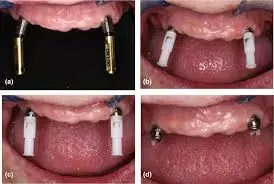- Home
- Medical news & Guidelines
- Anesthesiology
- Cardiology and CTVS
- Critical Care
- Dentistry
- Dermatology
- Diabetes and Endocrinology
- ENT
- Gastroenterology
- Medicine
- Nephrology
- Neurology
- Obstretics-Gynaecology
- Oncology
- Ophthalmology
- Orthopaedics
- Pediatrics-Neonatology
- Psychiatry
- Pulmonology
- Radiology
- Surgery
- Urology
- Laboratory Medicine
- Diet
- Nursing
- Paramedical
- Physiotherapy
- Health news
- Fact Check
- Bone Health Fact Check
- Brain Health Fact Check
- Cancer Related Fact Check
- Child Care Fact Check
- Dental and oral health fact check
- Diabetes and metabolic health fact check
- Diet and Nutrition Fact Check
- Eye and ENT Care Fact Check
- Fitness fact check
- Gut health fact check
- Heart health fact check
- Kidney health fact check
- Medical education fact check
- Men's health fact check
- Respiratory fact check
- Skin and hair care fact check
- Vaccine and Immunization fact check
- Women's health fact check
- AYUSH
- State News
- Andaman and Nicobar Islands
- Andhra Pradesh
- Arunachal Pradesh
- Assam
- Bihar
- Chandigarh
- Chattisgarh
- Dadra and Nagar Haveli
- Daman and Diu
- Delhi
- Goa
- Gujarat
- Haryana
- Himachal Pradesh
- Jammu & Kashmir
- Jharkhand
- Karnataka
- Kerala
- Ladakh
- Lakshadweep
- Madhya Pradesh
- Maharashtra
- Manipur
- Meghalaya
- Mizoram
- Nagaland
- Odisha
- Puducherry
- Punjab
- Rajasthan
- Sikkim
- Tamil Nadu
- Telangana
- Tripura
- Uttar Pradesh
- Uttrakhand
- West Bengal
- Medical Education
- Industry
Two narrow-diameter titanium-zirconium implants with stud attachments tied to highly satisfactory outcome mandible: Study

Two narrow-diameter titanium-zirconium implants with stud attachments tied to highly satisfactory outcome mandible suggest a study published in the Clinical Oral Implant Research.
A study evaluated the survival rates and marginal bone loss of narrow-diameter titanium-zirconium implants supporting complete maxillary and mandibular overdentures up to 3 years after loading. Ten completely edentulous patients who were dissatisfied with their complete dentures were enrolled. Two narrow-diameter implants were placed in the canine region of the maxilla and mandible. After second-stage surgery, implant-supported overdentures (palatal-free) attached by parallel alignable stud-attachments were placed. Patients were followed periodically for up to 36 months. Standardised radiographs were taken at baseline, 12 and 36 months to analyse mean marginal bone level changes around the implants.
Results: The Kaplan–Meier survival rates were 100% for mandibular and 68.0% (SE ± 10.9%) for maxillary implants at 36 months (p = .008). Six maxillary implants failed after loading; no mandibular implants were lost. Five implants failed due to loss of osseointegration. One implant fractured. The mean marginal bone level changes around the analyzed implants (n = 28, 9 patients) were −0.71 ± 0.82 mm in the mandible and −2.08 ± 1.52 mm in the maxilla at the 36-month follow-up. The difference in marginal bone level changes between the maxilla and mandible was significant (p = .019) at the 12- and 36-month follow-ups. Two narrow-diameter titanium-zirconium implants with stud attachments showed a highly satisfactory outcome in the mandible. The maxillary implants showed a high failure rate and significantly more bone loss over time than the mandibular implants. The minimal concept of two implants and an overdenture should be limited to the edentulous mandible.
Reference:
Kern, J.-S., Salin, E., Elvers, D., Rittich, A., Tuna, T., Hölzle, F., & Wolfart, S. (2024). Maxillary and mandibular overdentures retained by two unsplinted narrow-diameter titanium-zirconium implants – A clinical pilot study. Clinical Oral Implants Research, 00, 1–13. https://doi.org/10.1111/clr.14303
Dr. Shravani Dali has completed her BDS from Pravara institute of medical sciences, loni. Following which she extensively worked in the healthcare sector for 2+ years. She has been actively involved in writing blogs in field of health and wellness. Currently she is pursuing her Masters of public health-health administration from Tata institute of social sciences. She can be contacted at editorial@medicaldialogues.in.
Dr Kamal Kant Kohli-MBBS, DTCD- a chest specialist with more than 30 years of practice and a flair for writing clinical articles, Dr Kamal Kant Kohli joined Medical Dialogues as a Chief Editor of Medical News. Besides writing articles, as an editor, he proofreads and verifies all the medical content published on Medical Dialogues including those coming from journals, studies,medical conferences,guidelines etc. Email: drkohli@medicaldialogues.in. Contact no. 011-43720751


